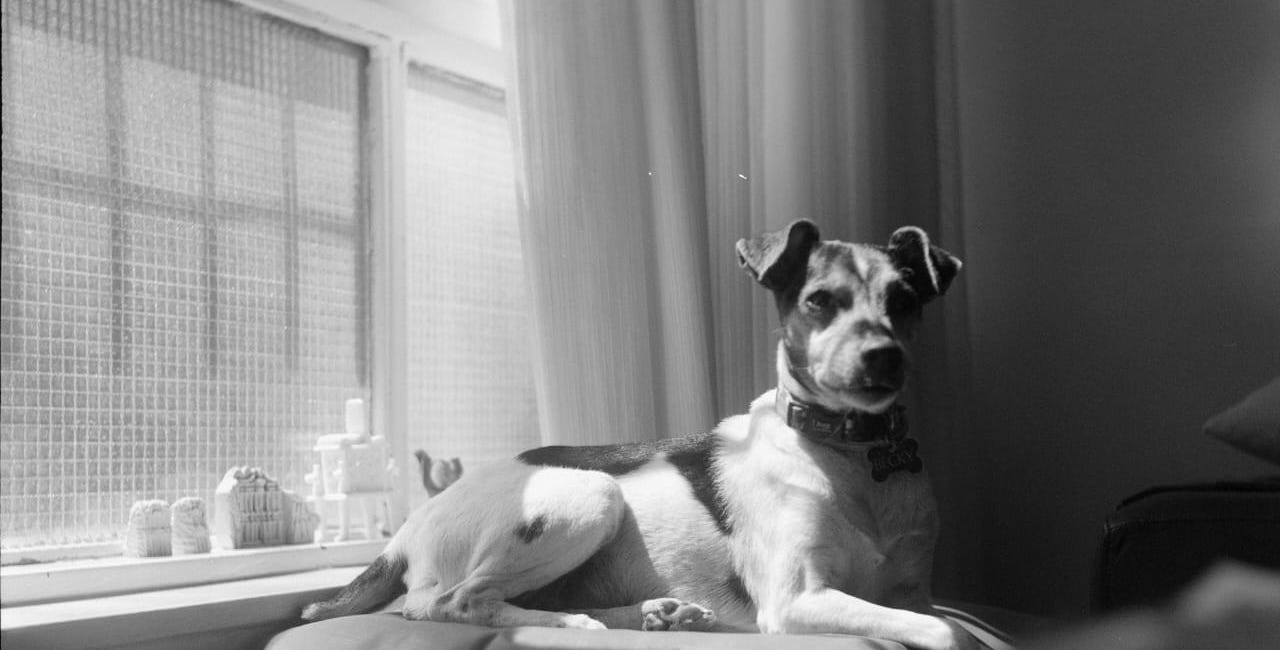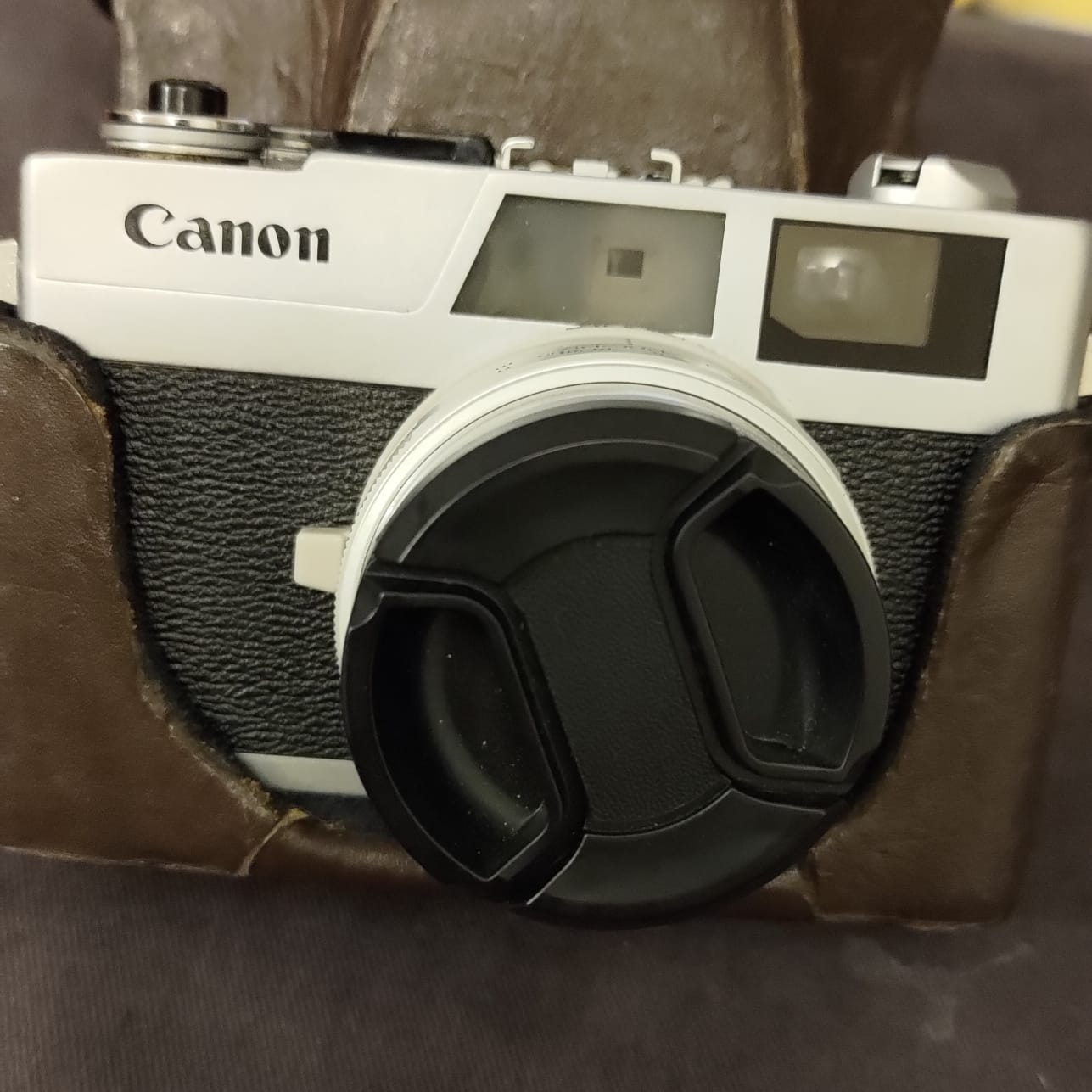Photography
This happened during the pandemic: a bucket started coming up and down outside my window. Mostly during daytime, but also during the early hours of the evening. Sometimes it would bang against the railing, startling my dog and my wife, who was working from home. We got curious. We payed attention every time the bucket was lowered and pulled up again.
There is a hook in that story: the younger, always eager to post immediately whatever it is that’s happening with their lives, online. My neighbor, who opened the photo shop, doesn’t print their photos, but scan the negatives/slides right after processing the films, thus providing them with means to go online with their analog material in a short (ish) time. The guy still needs time to process all the films he receives.
And, know what? I am also always eager to get my photos back from the developer. I guess that’s not exclusive of the younger than X generations, right?
Going back to film takes the immediacy away, brings back the thought process required when you have only 12, 24 or 36 shots at your disposal. You also have to think more carefully about the settings, it’s not digital so you don’t know what will come out. Did you get your figures correct? Did you judge the light accordingly?
Digital photography is a marvelous thing, don’t get me wrong. I am not one of those “hate-everything-modern” types, who swear by everything that is holy that CDs never held a candle to vinyl, that sort of thing. I try to keep up with times, but also see the positives. Not too long ago, a friend - writer, music lover - told me he’d gotten rid of all his records, cds, everything. I was honestly shocked. His explanation: “well, streaming sorted that out for us”.
My reaction was exactly the same to that of people who would say that it would never caught up, as when CDs came on the scene, because the recordings would simply erase themselves after some time (that pearl of a statement would resurface when writable CDs came about), that the quality was bad, the sound was flat, etc.
Not long after that encounter, I found myself pondering over which streaming service to sign up for. I still love my music collection, but I no longer feel I have to keep it for ever. I still don’t know what to do with over 1500 CDs, not to mention DVDs and stuff. I want to keep my LPs, since analog is the new digital. Actually, I never got rid of my records.
Forgive the digression. I got used to have easy access to my photographs and to be able to use them while blogging or posting whatever on instagram. In the old, analog days, what would you do with your photographs? You would probably organize them in albums, ready to show to friends and family. If you were a professional, you would have to use whatever method available at the time to showcase your work.
Today, though, the internet is a marvelous platform. You can have your own website - there’s plenty of creative tools and it’s bloody cheap - you can instagram, facebook or blog the hell off your photos. You can even substack them now! How about that?
So, going back to film posed an immediate issue: where the hell is that old scanner I had? Yes, that’s the tool you’ll need if you want to use your photos for something other than cluttering your house.
I must confess I’m in that peculiar state of excitement. I got myself a new camera - old, bear with me.
How old? I have no idea, about 50 years? My excitement comes after the disappointment of having a negative diagnosis for my Pentax P30t. I went from having four cameras in all (well, six), to having only three and none of the film ones were working. Well, none except for my mom’s old Yashica D. But it’s a medium format, quite chunky and not very easy to use.
Browsing the platform I normally use to sell some of my good stuff, I found this Canonet 28, which I reckon was made between ‘71 and ‘76. Very clean and in good working order, it caught my eye. Made an offer, which was promptly accepted, and then it was mine. It is a rangefinder - my first one - and Canon developed it to be an accessible rangefinder. This one was made in Taiwan and it has some cheap parts, but the camera itself feels very solid and well built. The focus on a rangefinder is a bit tricky at first, but I’m getting the hang of it.
What I mean by going slow but wanting to go fast stems from the fact that, by now we are so used to the immediacy of digital photography, that the mere thought of thinking about what to shoot, then finishing the film before developing it and then wait to get the photos back, causes an itch, a sense of “it’s going to take too long”.
Slowing down sends you back to those days when you could get your hands on a single roll of film and every frame had to be carefully considered. And film is not getting any cheaper, by the way. As with many people, I immersed in the whole digital need-for-speed of the past years, and even replaced my beloved cameras for my phone on trips, mostly for convenience. But I can’t shake the pleasure it gives me when the shutter goes “click-schlek”.
In the trail of that resurgence also came the search for older digital cameras, the point-and-shoot heroes of the first waves. In Brazil, people have been using these cameras because they usually already had them, and because it is cheaper to replace them than to replace a new phone. But, that’s not all, mind. The early sensors (CCD) were a lot slower and had a lot less megapixels, but they do retain - according to specialists - better color, than the more modern and potent CMOS sensors. And this is the main reason why some enthusiasts have been going after them. So, that old digicam forgotten in a drawer somewhere? Could be worth something.



